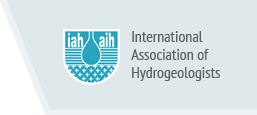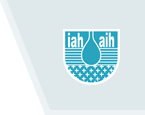Working Group: Urban MAR
Working group initiated at the 46th IAH Congress in Malaga, Spain (September, 2019)
Leader
Dr. Niels Hartog (KWR, the Netherlands) niels.hartog@kwrwater.nl
Motivation
Globally, continuing urbanization and climate-change are further aggravating urban challenges such as urban heat island effects and poor air quality. Not only does this increase the stress on the year-round availability of local water resources, urban areas are increasingly confronted with flooding due to intense rainfall and water shortages due to longer droughts. Moreover, in addition to primary water demand, the availability of water is a key requirement to allow the creation of greener, more healthy and sustainable urban environments, e.g. required to combat urban heat island effects and improve air quality. Retention of water in the city by capture and re-use is therefore necessary and more sustainable than solely relying on discharging in times of water surplus and importing in times in times of shortage. In addition, water-reuse using MAR to recharge treated waste-water has the potential to significantly increase urban water availability. With above-ground space at a premium in urban areas, use of the subsurface to maximize water retention and flood protection, has therefore significant potential to contribute to the sustainability and quality of urban living. One of the challenges for the successful application of such urban MAR technologies is the integration with the multi-function use of the above-ground urban space, for example to allow peak retention basins and pre-treatment with other urban functions such as parks, playgrounds and parking. Another important challenge is to ensure that the quality of the infiltrated water is of sufficient quality to prevent operational issues, such as clogging and complies with legislative infiltration requirements. Also, water quality development following infiltration should result in the infiltrated water being more fit-for-purpose. Urban MAR solutions that work will therefore vary with city, region and climate, but will in any case require close cooperation with non-hydrogeologists such as waste water engineers and storm water engineers, urban planners and architects.
Aims
This Urban MAR working group aims to exchange information and cooperate in the development of technical and non-technical aspects for the successful application of urban MAR and to showcase successful practical examples.
Intended outputs
To foster and develop the application of urban MAR, it is proposed to develop a position paper on the conditions, requirements and benefits of using urban MAR in cities. The aim is to present a (first draft) position paper at the MAR commission meeting at the 2020 IAH conference in Sao Paolo, Brazil.
The following steps are proposed to come to a position paper on urban MAR:
- Collection of “Urban MAR” example summaries (1-2 pages, standardized format)
- Thought development on what defines urban MAR and how it can contribute to more healthy and sustainable cities
- Develop a perspective on how the conditions and goals for successful urban MAR application depending on local and regional, hydrogeological, economic and governmental conditions.
- Write globally oriented draft position paper on potential and application of urban MAR
Members
Australia: Craig Flavel, Declan Page, Karen Johnston; Brazil: Paulo Galvão; China: Yan Zheng; Germany: Catalin Stefan; Netherlands: Niels Hartog; Spain: Ignacio Prieto Leache, Enrique Fernández Escalante, Pablo Ferreiro Gomez


